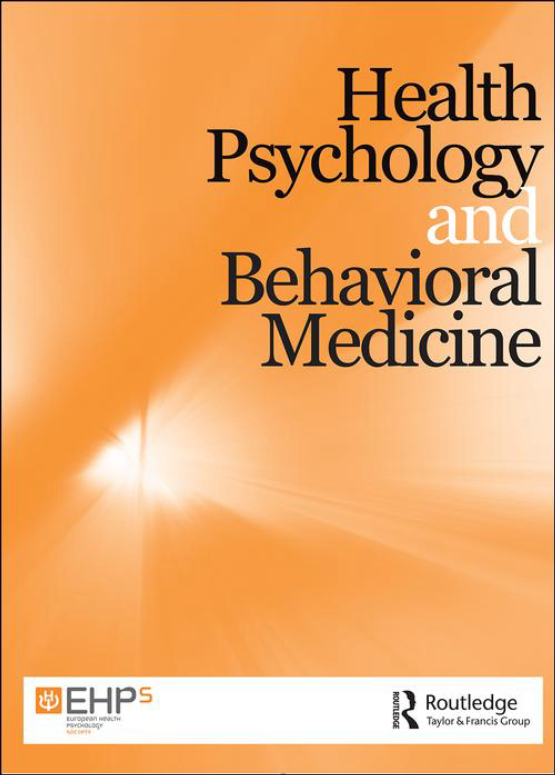Submit a Manuscript to the Journal
Health Psychology and Behavioral Medicine
For an Article Collection on
Eating During Pregnancy and Postpartum: Psychological, Behavioral, and Health Perspectives
Manuscript deadline

Article collection guest advisor(s)
Dr. Anett Nyaradi,
Curtin University
anett.nyaradi@curtin.edu.au
Prof. Dr. Louisa Arnold,
University of Applied Sciences Nordhausen
Louisa.arnold@hs-nordhausen.de
Eating During Pregnancy and Postpartum: Psychological, Behavioral, and Health Perspectives
Eating during pregnancy and the postpartum period plays a critical role in shaping maternal and offspring health. Nutrition during these stages not only impacts maternal physical and mental well-being and birth outcomes but also influences the cognitive, emotional, and physical development of the offspring. The interplay between maternal dietary choices, cultural influences, and biological processes creates a complex system of interactions that profoundly affect health outcomes. Understanding these dynamics is essential to uncovering how maternal and familial factors shape developmental trajectories. Given the growing interest in holistic health approaches, exploring the effects of eating behaviors during pregnancy and postpartum is timely and necessary to address pressing public health challenges.
Optimal maternal nutrition is fundamental for a healthy pregnancy, positive birth outcomes, and successful postpartum recovery. Poor dietary behaviors during these stages have been linked to adverse outcomes, including neurodevelopmental conditions, cognitive impairments, and mental health challenges in offspring. Moreover, maternal nutrition interacts with key mechanisms such as the gut-brain axis, epigenetic programming, and sensitive developmental periods, which are critical windows for influencing long-term health. Additionally, cultural and psychosocial determinants, including family support and socioeconomic factors, play significant roles in shaping eating behaviors. Addressing these issues through targeted research and interventions is vital to improving maternal and child health outcomes, improving pre- and postnatal care, reducing disparities, and informing global public health strategies.
This Collection welcomes articles addressing a range of topics related to eating during pregnancy and postpartum fitting the scope of Health Psychology and Behavioral Medicine. Suggested subtopics include:
- Maternal nutrition's role in cognitive, behavioral, and neurodevelopmental outcomes via mechanisms such as the gut-brain axis and epigenetic programming.
- Examining the influence of food aversions, cravings, cultural norms, family support systems, and socioeconomic factors on maternal eating habits.
- Investigating the relationship between maternal mental health (e.g., stress, anxiety, depression) and dietary patterns, including emotional eating and disordered eating behaviors.
- Analyzing how social networks, community support systems, and cultural expectations shape maternal eating habits and food choices.
- Evaluating mindfulness-based approaches, motivational interviewing, community education programs, and digital health tools (e.g., mobile apps, social media) designed to influence maternal dietary behaviors.
- Investigating the role of nutritional knowledge, health literacy, and access to dietary information in promoting healthy eating behaviors during pregnancy and postpartum.
- Exploring the impact of environmental exposures, food security, food marketing, and public health policies on maternal dietary behavior.
- Examining the influence of paternal diet on offspring health and its integration into family-focused health strategies.
- Investigating intergenerational effects of maternal dietary behaviors through mechanisms such as epigenetic programming and the gut-brain axis.
We encourage submissions of original research, reviews, case studies, and systematic reviews that align with the journal's article types and objectives. By showcasing diverse perspectives, this Collection aims to foster interdisciplinary collaborations and contribute to advancing maternal and child health research.
Please contact Commissioning Editor Dr. MK Huffman at mary.huffman@taylorandfrancis.com with any queries about discount codes regarding this Article Collection.
Please be sure to select the appropriate Article Collection from the drop-down menu in the submission system.
Dr. Anett Nyaradi is the Domain Lead for Health Advocacy at Curtin Medical School, Curtin University. With over a decade of experience in medical education and research, her expertise spans nutrition, population health, and advocacy. Her PhD at the University of Western Australia explored the impact of nutrition on childhood cognitive outcomes, contributing to a better understanding of early-life nutritional influences on health. Dr. Nyaradi’s work emphasizes critical thinking, inclusion, and advocacy, with a focus on addressing health inequities and promoting well-being across generations.
Prof. Dr. Louisa Arnold is a professor for Early Intervention and Early Aid at the University for Applied Sciences in Nordhausen, Germany. Her expertise is in the field of health psychology, mostly addressing issues around birth. Her research applies an interdisciplinary multi-methodological approach focusing the needs and attitudes of pregnant and birthing persons and the possibilities of person-oriented care.
Dr. Nyaradi and Prof. Dr. Arnold declare no conflicts of interest regarding this work.
Benefits of publishing open access within Taylor & Francis
Global marketing and publicity, ensuring your research reaches the people you want it to.
Article Collections bring together the latest research on hot topics from influential researchers across the globe.
Rigorous peer review for every open access article.
Rapid online publication allowing you to share your work quickly.
Submission Instructions
All manuscripts submitted to this Article Collection will undergo desk assessment and peer-review as part of our standard editorial process. Guest Advisors for this collection will not be involved in peer-reviewing manuscripts unless they are an existing member of the Editorial Board. Please review the journal Aims and Scope and author submission instructions prior to submitting a manuscript.
